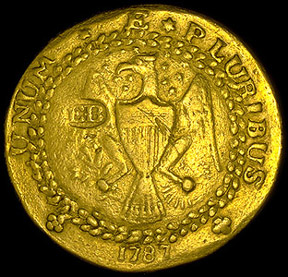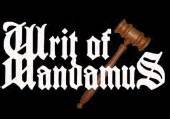 In Heritage Numismatic Auctions v. Stiel, a dispute about the the sale of rare coins, the Fifth Court affirmed the denial of a motion to compel arbitration, finding that the relevant documents were not adequately proved up by the sponsoring affidavit. The witness “did not testify that the documents in Exhibit F were ‘true and correct’ copies of the contracts or otherwise state that they were the originals or exact duplicates of the originals.” While the affidavit began with the phrase, “The facts contained herein are true and correct,” the Court held that “[t]he trial court could interpret this statement as asserting the factual averments in the affidavit were true and correct but not asserting the documents in Exhibit F were the originals or exact duplicates of the originals as required by Rule 902(10)(B)(2).” Finally, from a general description of the documents as “the various Terms and Conditions . . . ,” the Court held that “[t]he trial court could have concluded that [the witness’s] statement did not constitute testimony that the documents in Exhibit F were the originals or exact copies of the contracts.” No. 05-16-00299-CV (Dec. 16, 2016) (mem. op.)
In Heritage Numismatic Auctions v. Stiel, a dispute about the the sale of rare coins, the Fifth Court affirmed the denial of a motion to compel arbitration, finding that the relevant documents were not adequately proved up by the sponsoring affidavit. The witness “did not testify that the documents in Exhibit F were ‘true and correct’ copies of the contracts or otherwise state that they were the originals or exact duplicates of the originals.” While the affidavit began with the phrase, “The facts contained herein are true and correct,” the Court held that “[t]he trial court could interpret this statement as asserting the factual averments in the affidavit were true and correct but not asserting the documents in Exhibit F were the originals or exact duplicates of the originals as required by Rule 902(10)(B)(2).” Finally, from a general description of the documents as “the various Terms and Conditions . . . ,” the Court held that “[t]he trial court could have concluded that [the witness’s] statement did not constitute testimony that the documents in Exhibit F were the originals or exact copies of the contracts.” No. 05-16-00299-CV (Dec. 16, 2016) (mem. op.)
Monthly Archives: December 2016
 In a technical but financially critical decision, Eddington v. Dallas Police & Fire Pension System, the Fifth Court held that adjustments to the future interest rate paid on accounts established under a pension plan, sponsored by the beleaguered Dallas Police & Fire Pension system, did not violate the prohibition on benefit reductions contained in article XVI, section 66 of the Texas Constitution. No. 05-15-00839-CV (Dec. 13, 2016). Of general interest, a component of its analysis reviewed when a federal Fifth Circuit opinion about state law matters will be followed in state court.
In a technical but financially critical decision, Eddington v. Dallas Police & Fire Pension System, the Fifth Court held that adjustments to the future interest rate paid on accounts established under a pension plan, sponsored by the beleaguered Dallas Police & Fire Pension system, did not violate the prohibition on benefit reductions contained in article XVI, section 66 of the Texas Constitution. No. 05-15-00839-CV (Dec. 13, 2016). Of general interest, a component of its analysis reviewed when a federal Fifth Circuit opinion about state law matters will be followed in state court.
 Yes, it arose in the unusu
Yes, it arose in the unusu al procedural posture of a Rule 736 home equity loan foreclosure, and no, it is not the recommended practice. That said, the relators in the case of In re:
al procedural posture of a Rule 736 home equity loan foreclosure, and no, it is not the recommended practice. That said, the relators in the case of In re:  Priester successfully convinced the Fifth Court to reverse direction and, on rehearing, grant a writ of mandamus in their favor “[i]n light of the more developed record and clarified arguments . . . .” No. 05-16-00965-CV (Nov. 21, 2016) (mem. op.)
Priester successfully convinced the Fifth Court to reverse direction and, on rehearing, grant a writ of mandamus in their favor “[i]n light of the more developed record and clarified arguments . . . .” No. 05-16-00965-CV (Nov. 21, 2016) (mem. op.)